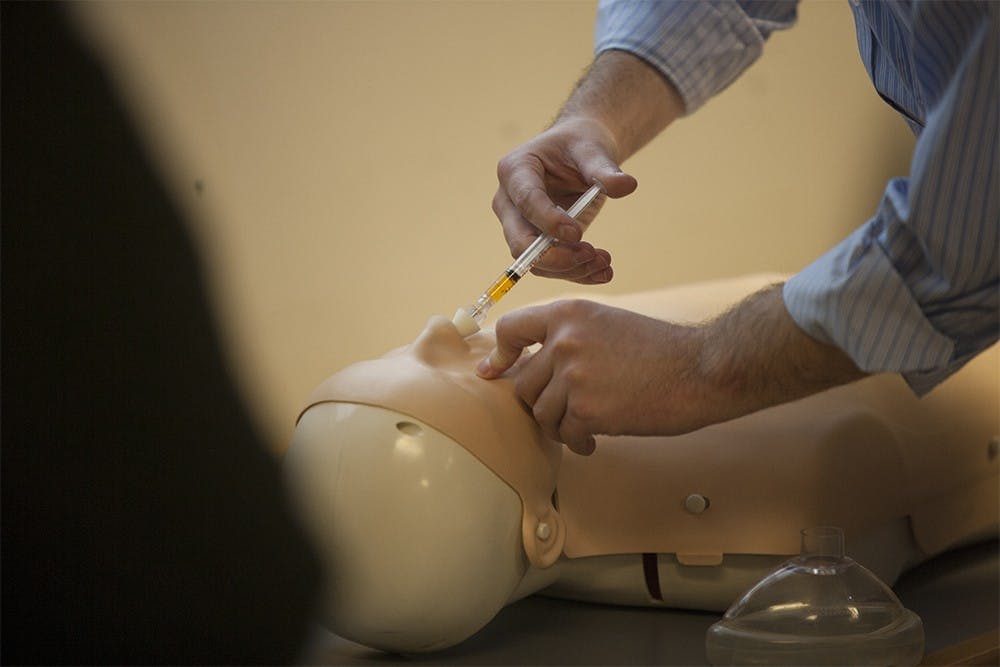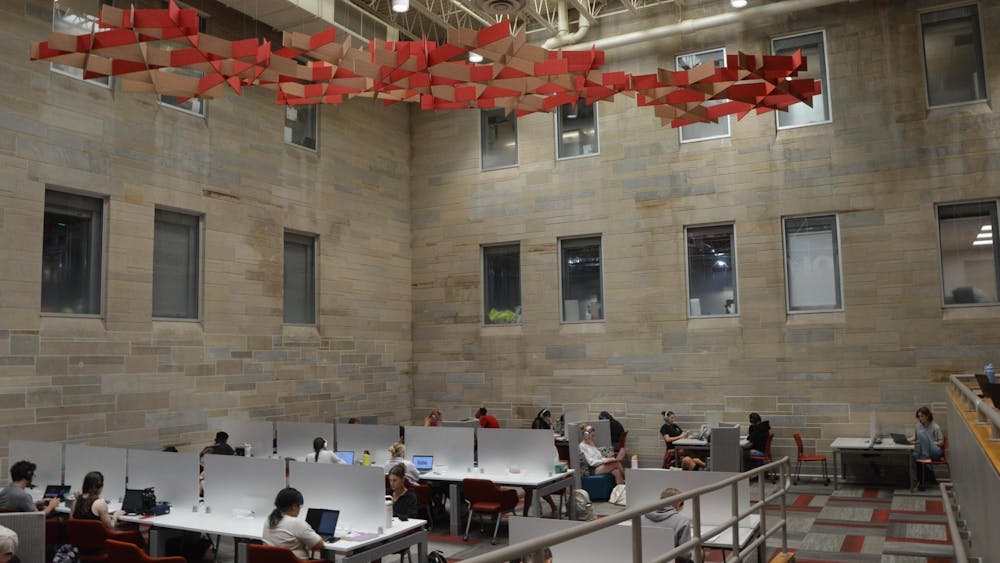Indiana Attorney General Greg Zoeller announced the program, which will provide more naloxone, an antidote for opioid or heroin overdoses.
The grant money totals $127,000 and will be distributed to three Indiana nonprofit organizations: Overdose Lifeline, Health and Hospital Corporation of Marion County and Indiana Naloxone Project based in Bloomington. These organizations are tasked with distributing naloxone kits and providing training to police officers, firefighters, EMTs — anyone who may be first on the scene of an overdose.
Opioid painkillers and opioid-based heroin cause at least a third of drug overdose deaths in Indiana, and heroin deaths specifically have doubled in the last few years, Zoeller said.
“We’ve got a prescription drug and now a heroin abuse crisis here in Indiana,” Zoeller said. “And it’s really tearing apart our communities and our families.”
Zoeller said he expects at least 3,500 of the kits to be distributed statewide to first responders.
Zoeller’s office has identified high-priority counties in which the training and distribution process will be expedited.
Wednesday night, IUPD held a naloxone training seminar, which was attended by approximately 30 to 35 first responders, who will then go on to their respective departments and train more first responders, Zoeller said.
Zoeller said he has found that addiction often begins when patients are overprescribed opioid painkillers and subsequently develop an addiction, eventually graduating to heroin usage.
Zoeller said the grant money does not come from taxpayer dollars. Instead, it comes from $1.3 million collected from fines and penalties placed on a pharmaceutical company that had been overprescribing, Zoeller said.
Christy Thrasher, head of the Indiana Naloxone Project, said the antidote has been around since 1970, but prior to this time, fewer first responders have been provided with it.
Often there is a four-to-five minute window after a person overdoses during which it is possible to revive them, she said.
Naloxone allows someone who has overdosed to begin breathing again. Training and providing more first responders with the antidote would increase the possibility of reviving someone during an overdose.
Thrasher said she is grateful for the grant program not only because it will hopefully save lives, but also because it raises local awareness of opioid and heroin addiction.
“The negative effects on families and the amount of grief and suffering I think has turned into this movement,” Thrasher said. “We’re raising awareness to bring down the stigma and the shame.”
Due to lingering symptoms of dependency and withdrawal in those addicted to the drugs, Zoeller said he expects the problem to get worse before it gets better.
However, he is confident that the surge in the distribution of naloxone will save lives, due to the fact that it has done in the past. And saving lives is ultimately his goal.
“We’ve already lost too many,” Zoeller said. “We’re going to have to do better.”






